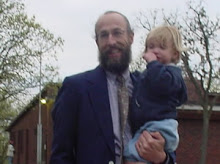On Beloved Community
A week ago I co-facilitated a CETL book talk with my friend, Marla Kanengieter, on bell hooks’ Teaching Community: A Pedagogy of Hope. Eighteen faculty attended and between us we had a pretty good conversation that wound among the matters of co-optation, anti-racism, and whether change can best be effected from outside or inside higher education. But hooks uses a term in the book we didn’t talk so much about and that I am intrigued by: “beloved community.” When the book talk was over and the participants had left, Marla and I stayed to talk a bit. She asked me what “beloved community” at St. Cloud State University would look like to me.
hooks writes of the need for honesty, clarity, love, and radical intellectualism (as distinct from public intellectualism which she thinks of as signifying that someone smart is arguing ideas that fail to engage meaningfully in critique of the status quo). For hooks, “beloved community” is not a facile notion. The distinguishing features of the terrain of “beloved community” are not a surface smoothness – civility or making nice for the sake of stability – but depth and reach, profound spiritual and rigorous intellectual engagement in the labor of the professoriate and in the struggle for democratic education and increasing social justice.
So what would beloved community at SCSU look like to me? I offer the following as a provisional answer – as an early and perhaps stumbling attempt to articulate what it is that I hope for in a University community to which I find myself deeply attached even when I feel most discouraged and at odds with it.
On Beloved Community (at St. Cloud State University)
In a beloved community, there would be widespread and deeply felt respect for the labor of faculty, staff, students, and administrators. Rather than competition among constituencies for the honor of hardest working, most dedicated, and most necessary to the success of students, we would recognize the extent of our mutual contingency – the degree to which we are all necessary, responsible, and responsive to one another’s needs and the needs of the institution.
In a beloved community, the over-arching, organizing questions driving institutional, college, and departmental decisions would be something like this: what are the conditions necessary for students, faculty, staff, and the University’s administration to engage together in empowered and joyful learning and teaching? What can we (I) do to create, support, and sustain those conditions?
In a beloved community, we would acknowledge the hunger of many faculty, staff, and students for spiritual sustenance and honor the need for community-wide as well as intimate conversations about matters of the spirit.
In a beloved community, we would argue mightily about ideas and issues. We would critique openly and fully arguments, interpretations, lived conditions and material realities. And we would leave those vigorous debates still speaking to one another, still convinced of one another’s integrity even though we disagree. We would leave ready to come back again another day for more discussion.
In a beloved community, we would be filled with and express our sense of curiosity and wonderment about the complex relationship between what we teach, how we teach, and what students learn. We would strive without embarrassment, shame or defensiveness to transform our classrooms and our teaching practices. And in this beloved community, because of our commitment to and pleasure in teaching, past and current students would narrate profound learning experiences that happened for them inside our classrooms as well as outside of them.
In a beloved community, we would listen deeply to one another. We would be less inclined to disbelieve and/or discredit one another’s lived experiences and embodied histories and more inclined to honor one another. We would be more ready and more likely to join in struggles for more fully realized social, economic, and political justice even when those struggles might not directly or immediately serve our own self interests.
In a beloved community, we would be as concerned with the spirit of the law as we are with the letter of the law. We would think in covenant as well as contractual terms about our responsibilities to one another. We would recognize that injustice thrives where policies, procedures, and accepted institutional practices are “understood” rather than explicit. Concomitantly, we would recognize that mere adherence to the rule of law is not enough to transform a co-located group or groups into a beloved community. We would care for and attend to one another not because we’ll get in trouble if we don’t, but because we are deeply invested in the quality of one another’s lives.
In a beloved community, the actions of individuals and groups would be less driven by the logics that attend the conviction that power, influence, and resources are limited -- that we must, therefore, use any means necessary to acquire them for ourselves. Instead, we would take note of our self-interest in institutional decisions and decision-making processes, but act with integrity and care in service of our shared interests. And collectively we would be fearless in accounting for the needs of historically excluded and marginalized faculty, staff, students, and administrators because we would recognize the degree to which the University is enriched, enlivened, and transformed by diversity.
In her book, hooks also talks about prophetic imagination and suggests that what distinguishes the practice of prophetic imagination from more prosaic practices is the courage and willingness to live as if the world one can see in one’s mind’s eye is the world in which one actually lives. As I write, I play in the vision of people writing into, deepening, and extending a shared imagining of beloved community and of a growing community behaving as if that is the world in which we live. Now that would be interesting.


0 Comments:
Post a Comment
<< Home